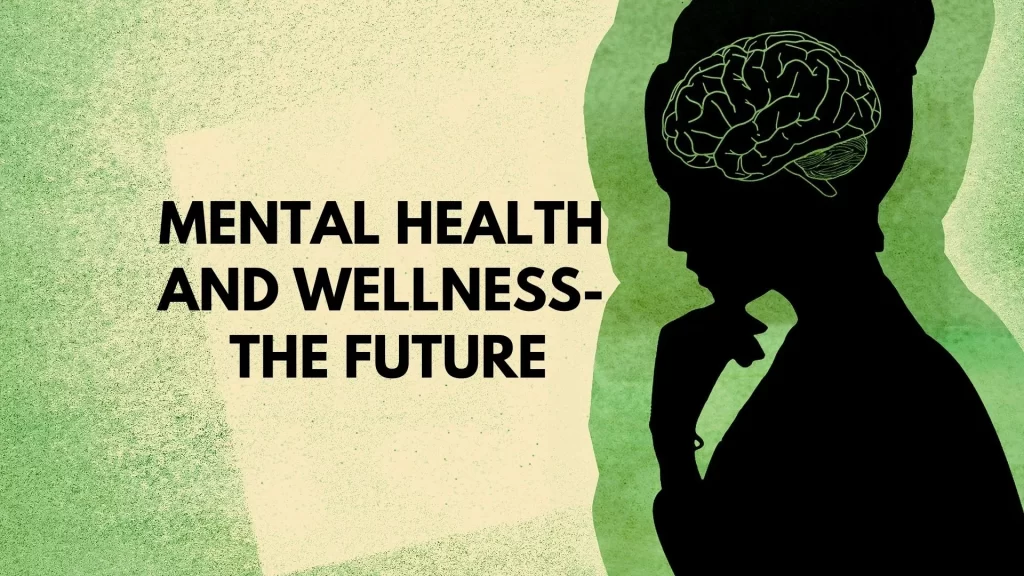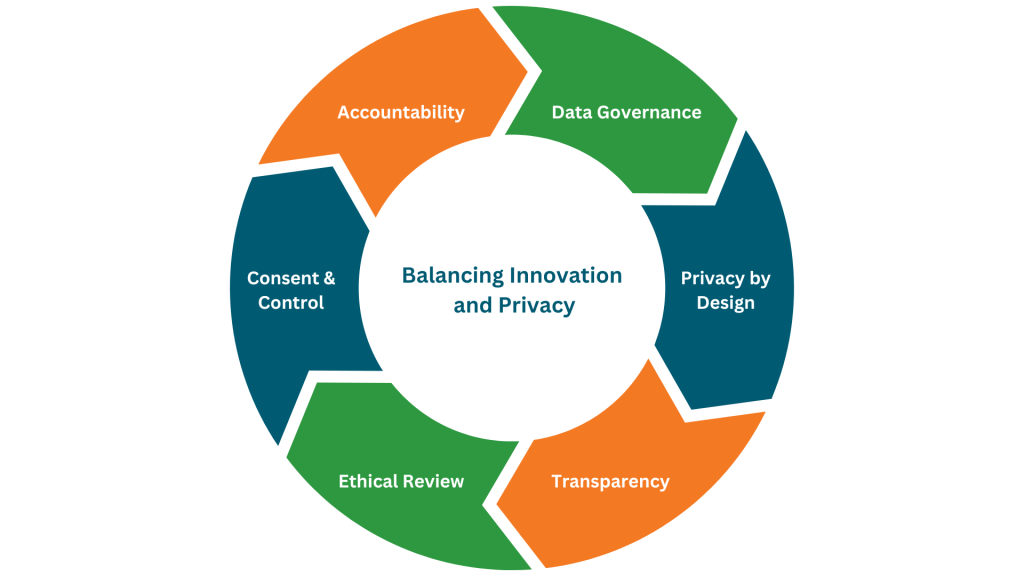Introduction
Mental wellness is no longer just a personal endeavor. It’s a global priority influenced by breakthroughs in technology and psychology.
As the demand for mental health care rises, innovative tools are shaping how we address challenges in this critical area.
In this blog, we’ll explore the current state of mental wellness, cutting-edge psychological innovations, and the future of tech-driven solutions.

Current State of Mental Wellness and Challenges
The Growing Need for Mental Health Support
Mental health conditions have seen a significant rise worldwide. According to the WHO, nearly one in eight people live with a mental health disorder.
Stress, anxiety, and depression remain among the most prevalent conditions.
The pandemic exacerbated these issues, creating an urgent need for accessible mental health care.
However, stigma still surrounds mental health conversations in many cultures.
This lack of awareness delays timely diagnosis and treatment, worsening outcomes for individuals.
The growing need for effective solutions has become a global call to action.
Barriers to Accessible Care
While mental health services are expanding, access remains uneven.
Rural and underserved areas often lack qualified professionals.
Costs can also deter individuals from seeking help, especially in countries without universal healthcare.
Technology and innovation have the potential to bridge these gaps.
By making tools more affordable and scalable, psychological support can reach those who need it most.
Transformative Innovations in Psychology
Artificial Intelligence in Mental Health Care
AI is revolutionizing mental health by enhancing diagnosis and treatment.
Chatbots like Woebot and AI-driven platforms offer immediate support for stress and anxiety management.
Machine learning algorithms analyze patient data, helping professionals identify patterns and predict crises.
AI doesn’t replace therapists but complements their work, making care more efficient.
However, ethical considerations like bias in algorithms must be addressed to maximize benefits.
Virtual Reality for Therapeutic Treatments
Virtual Reality (VR) has emerged as a powerful tool in therapy.
Exposure therapy for phobias, PTSD treatment, and stress relief exercises are now possible through VR platforms.
Applications like Limbix allow patients to face fears in controlled environments, guided by professionals.
VR’s immersive nature accelerates progress, creating real-world impacts faster than traditional methods.
Its potential to make therapy engaging is transforming how individuals approach their mental health.
The Role of Health Tech in Mental Wellness
Mental Health Apps and Online Platforms
Mental health apps like Calm, BetterHelp, and Headspace are making support accessible worldwide.
These apps provide meditation guides, counseling sessions, and mood tracking features.
Users can access help anytime, breaking down barriers of time and location.
The growing reliance on these tools highlights their effectiveness.
Yet, vetting app quality remains crucial to ensure users receive evidence-based care.
Wearable Technology for Stress and Anxiety Monitoring
Wearable devices, such as smartwatches, are transforming self-care practices.
They track heart rates, sleep patterns, and stress levels, offering real-time insights.
When synced with health apps, users receive personalized recommendations to improve their mental well-being.
This data-driven approach empowers individuals to manage their mental health proactively.
As wearables evolve, they’re likely to become indispensable tools in the mental wellness journey.
Benefits and Ethical Considerations
Advantages of Tech-Driven Psychology
Tech-based mental health solutions are bridging gaps in traditional care models.
They offer scalability, making care accessible to larger populations.
Digital tools also reduce stigma, allowing users to seek help discreetly.
Beyond accessibility, these tools enhance outcomes by integrating data-driven insights.
Continuous innovation promises to make mental health care more efficient and personalized.

Addressing Privacy Concerns in Mental Health Tech
As technology advances, concerns over data security grow.
Mental health apps and platforms handle sensitive user information.
Breaches or misuse of this data can lead to serious consequences for individuals.
Ensuring compliance with privacy laws like GDPR and HIPAA is crucial.
Transparency in data handling builds trust, encouraging wider adoption of these tools.
Future Directions for Mental Wellness Innovations
Collaborative Approaches Between Psychologists and Technologists
The future of mental wellness lies in partnerships between mental health professionals and tech experts.
Collaborative research ensures tools meet clinical standards while leveraging technological advancements.
Joint efforts can also streamline care delivery, benefiting both practitioners and patients.
Creating Equitable Access to Mental Wellness Tools
Equity remains a critical goal in mental health innovation.
Scaling tools to low-income and underserved communities ensures no one is left behind.
Initiatives like free versions of apps or subsidized health tech can make a lasting impact.
Governments, organizations, and developers must prioritize inclusivity.
A world where mental wellness tools are universally accessible is achievable with collective effort.
The Broader Impact of Innovations on Society
The advancements in mental wellness and psychological innovations extend far beyond individual well-being.
They have profound implications for workplaces, educational institutions, and healthcare systems.
Impact on Workplaces
Mental wellness technology is reshaping workplace environments.
Employee assistance programs now integrate digital tools to monitor stress levels and provide instant support.
Organizations are embracing AI-based platforms to conduct well-being assessments.
By addressing mental health proactively, businesses see reduced absenteeism and improved productivity.
Flexible working models supported by mental wellness apps encourage a balanced work-life dynamic.
This shift acknowledges that employee mental health is critical to organizational success.
Impact on Education
Educational settings are also leveraging psychological innovations.
Apps and tools designed for young users address stress, exam anxiety, and social pressures.
Teachers and counselors use AI-powered insights to identify students needing intervention.
This creates a supportive environment where mental health conversations are normalized.
Promoting mental wellness at an early age equips students with lifelong coping skills.
The ripple effect benefits families, communities, and society at large.
Global Efforts to Foster Mental Wellness
Mental health innovations are gaining attention from governments, NGOs, and international organizations.
The WHO and other entities are partnering with tech companies to create accessible mental health solutions.
Bridging the Urban-Rural Divide
In rural areas, where mental health resources are scarce, telehealth and mobile apps are vital.
They bring expert guidance to regions that otherwise lack mental health infrastructure.
This approach not only expands access but also reduces the urban-rural gap in healthcare quality.
Collaborative efforts aim to make these tools culturally relevant and easy to use.
Raising Awareness Through Campaigns
Global campaigns emphasize the role of technology in reducing stigma.
By sharing success stories and promoting innovation, they inspire individuals to seek help.
Efforts like Mental Health Month campaigns include webinars, resources, and app recommendations.
Such initiatives amplify awareness and make mental health a priority worldwide.
A Glimpse Into Tomorrow: Emerging Trends in Mental Wellness
The future promises even more transformative trends in mental wellness and psychology:
Neurotechnology and Brain-Machine Interfaces
Neurotechnology is making strides in understanding and treating mental health conditions.
Brain-machine interfaces (BMIs) could enable real-time monitoring and intervention for disorders like anxiety and depression.
These technologies open doors to personalized therapies based on an individual’s neurological data.
While still in experimental stages, BMIs have the potential to revolutionize mental health care.
Gamification of Mental Health
Gamification techniques are increasingly being integrated into mental health apps.
Interactive games designed to reduce stress or improve focus make mental wellness more engaging.
By combining entertainment with therapeutic value, gamified tools attract a broader audience.
This trend is particularly effective for younger demographics who prefer interactive digital experiences.
Conclusion
The intersection of psychology and technology is unlocking unprecedented opportunities in mental wellness.
From AI-driven platforms to immersive VR therapies, innovation is reshaping how we approach mental health care.
As we embrace these advancements, ethical considerations and equitable access remain essential.
Together, we can harness these tools to create a healthier, happier future for all.




